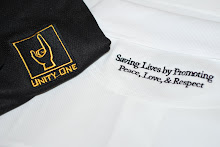
Darren "BO" Taylor
JANUARY 20, 1966 - AUGUST 11, 2008
A Better LA has launched its newest project in partnership with Unity One and its founder, Bo Taylor, winner of the California Wellness Foundation Peace Prize. Unity One’s extraordinary work over the past 15 years includes reducing violence through ceasefire agreements, “peace squads,” and classes for at-risk youth. The mission of this current project is to defeat violence and bring peace to the streets of LA. By merging Unity One’s front line work with A Better LA’s unique resources, this is a groundbreaking approach to instilling long-term success in our neighborhoods. (September 2008)
BO Taylor (42) former Los Angeles gang member who became a peacekeeper respected by street thugs and by law enforcement and community activists struggling to reduce inner-city violence. After the 1992 LA riots, Taylor founded Unity One, a grass-roots organization that attacked gang violence through life-skills training and conflict resolution on the front lines. Earlier this year, he was diagnosed with a rare cancer that attacks the tissues of the mouth; it spread to his neck and head, but he insisted on fighting it in his own way, spurning traditional medicine to seek treatment in Tijuana, Mexico. He died en route to a clinic there, in San Diego, California on
August 11, 2008.
lifeinlegacy.com
lifeinlegacy.com
